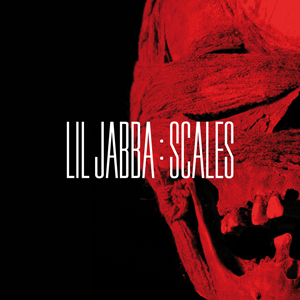Lil Jabba Scales
Chicago’s footwork sound has proven malleable for a host of producers worldwide, but apart from […]

Chicago’s footwork sound has proven malleable for a host of producers worldwide, but apart from long-running niche crews in France and Japan, it’s difficult to think of a producer outside of Chicago who has wholeheartedly embraced it. Some may cite artists such as Om Unit and Addison Groove, but these beatmakers, wary of treading on the scene’s blueprints, have taken its elements and tempo into new zones. And as interesting as they are, these “slowfast” experiments—as they’ve occasionally been dubbed—usually discard footwork’s cut-and-paste, disorientating qualities, and rarely manage the same mercurial energy. There are many reasons why these producers make the alterations they do, but operating at a remove from inner-city Chicago surely plays a part. However, there are exceptions to this tendency. Lil Jabba grew up between Australia, Paris, and New York, and now splits his time between Brooklyn and Baltimore; still, the producer is invested in a very Chicagoan take on footwork, so much so that he has become affiliated with that city’s marquee Teklife crew.
Even so, Scales, Lil Jabba’s debut album, promises a crossover point. It is orchestrated to a degree that obfuscates the genre’s roots—as wild as some of DJ Rashad’s arrangements are, for example, one can usually hear the ghetto house poking through. Luckily, Lil Jabba balances this by making sure that his tracks are not over-thought. Moments of calculation are rare, as patterns repeatedly splinter into confusing wormholes and grooves are never allowed to ride out. The drums sound more or less like they’re out of the box, and the melodies are smeared on in a loose, psychedelic way. That jumble might be a little off-putting at first, especially for those accustomed to cleaner takes on footwork (or, indeed, “slowfast”) but it undeniably signifies a teeming undergrowth. Lil Jabba is clearly a city kid, but he has spoken in interviews about being influenced by nature, and a certain feral sensibility is present here. He rarely references the rap lyrics and battle cries of the Chicago scene; on “Gorgon,” there is a small sample about “running the show” and some stray gunshots pepper the composition, but they don’t pervade the track, and for the most part, Jabba keeps his meanings elusive. Moreover, he tends toward using his own sounds. There seem to be a few samples, but they are not the easily recognizable sort one would usually notice on a Chicago record. There is a part on “Maven” that recalls Minnie Ripperton’s “Loving You,” but it is largely distorted beyond recognition. The dreamy, old-Hollywood strings of “Red Current,” meanwhile, are counterbalanced—or overpowered—by mechanical bleeps. Like an earthbound version of Young Smoke’s The Space Zone, Scales is a record about mutating the machine itself, rather than mutating preexisting music.
Operating under this premise, Lil Jabba is able to incorporate a variety of moods while retaining footwork’s signature stumble. The drums on “Cavern” have an almost tribal roll, while a wispy, asthmatic flute (or synth voice) wheezes on top. On “Raiders,” he employs what sounds like a zurna, and couples it with a persistently battering rhythm and dramatic horns, which operate on a lower register. As a result, he is able to conjure the ubiquitous battle track without the use of a “call to war” vocal. Closer “Serum” constructs a woozy, UK-esque synth framework on top of grumbling bass, while its jittery toms, snares, and rimshots patter like droplets on glass. It remains to be seen how well these tracks fit into actual footwork sets, but one gets the sense it doesn’t matter too much to Jabba. What is evident, however, is that the producer has found in footwork a medium for beguilingly dense collage. Rather than airbrushing out the genre’s rawness, Jabba seems to revel in magnifying it, and this is a welcome approach.

